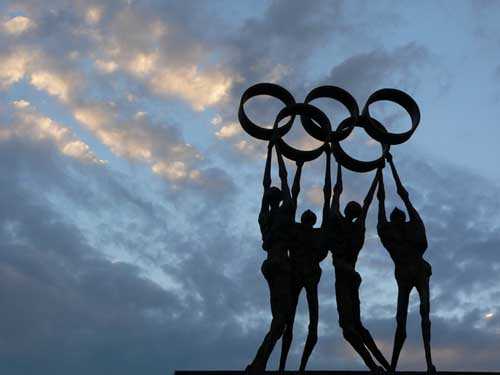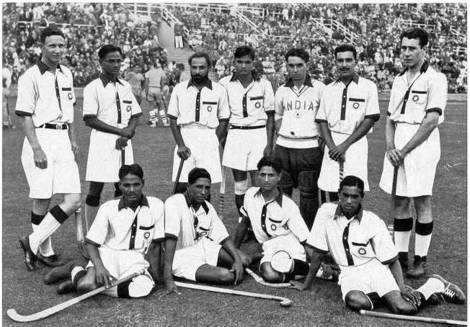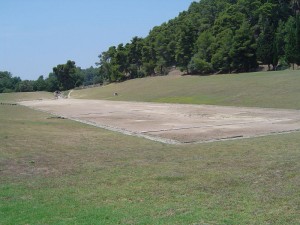The modern Olympic Games
By indian | March 26, 2009
Originally, the games are exclusively in summer. The figure skating and ice hockey and make appearances at the Olympic program before the creation of the Winter Games in 1924. After the initial success of tests in Athens in 1896, the Olympics in Paris in 1900 (which saw the first women to attend the tests) and St. Louis in 1904 are embedded in the curricula of world expositions. Games interlayers of 1906 in Athens, not recognized by the IOC, marked a renewed interest of the public and athletes with a very international participation while 80% of athletes who took part in the games of St. Louis were American. The European nations had in effect waived to make the long and costly trip across the Atlantic.

241 athletes from 14 nations in 1896, the Games go to 10 500 athletes representing 200 delegations at the last Summer Olympics. It is now one of the most publicized. The Sydney games in 2000 and together over 16 000 journalists and broadcasters. The size of the test is such that pose problems for the host cities, the sponsorship covers only partially. The host cities benefit because of the Games to be equipped with transport and other sports facilities, among others. For example, the estimated budget for the London Games in 2012 is 9 billion pounds.
Topics: Modern Olympic | No Comments »
History of Olympics in India
By indian | February 14, 2009
India first participated in Olympic Games on 1900, with (Norman Pritchard) winning two medals in athletics. Firstly Indian nation sent a team to (1920) Summer Olympic Games & participated in every Summer Games since then. India competed at several Winter Olympic Games since 1964.

Indian athletes won a total of Twenty medals which are achieved mostly in the field of hockey. India’s men’s field hockey team was dominant in Olympic competition at that time, winning 11 medals in 12 Olympiads between 1928 and 1980, including 6 successive gold medals from .
Topics: Hockey | No Comments »
The Ancient Olympic Games
By indian | February 10, 2009
Many myths surround the origin of the ancient Olympic Games. One says that Heracles built the Olympic stadium and surrounding buildings in honor of his father Zeus, after completing his twelve labors. He would have walked 600 feet and called this distance a stadium, knowing that the demigod shod of 46 we deduce that a point is approximately 192 meters. The first Olympic Games were deemed to have taken place in 776 BC. This year marks the beginning of the Olympic calendar, that the years are grouped in Olympics. It is also the year 1 of the Greek calendar adopted in 260 BC. However, it is likely that the Games have been even earlier, given the abundance of offerings from the Geometric period found at Olympia. Therefore, Games gained importance throughout ancient Greece, but there are nearly 300 sporting events of the same type. The Olympics are with the Pythian Games, the Nemean Games and the Isthmian Games, the periodokines, the “Grand Slam” of Greek sport.

The competition schedule includes races horse (two tanks and four horses) and athletic events say gymnastics (running over several distances, discus throw, long jump, javelin throw, pentathlon [1], control, boxing and pankration). Disc length and javelin do not have Olympic title but part of the five events of the pentathlon with the stadion race and fight. Coroebos opened the official medal tally by winning the race trail Stage in 776 BC. Among the other major Greek athletes of the ancient Olympics included such Milo of Croton (wrestling, sixth century BC.) Diagoras of Rhodes (Boxing, V century BC. J.-C .) Polydamas of Skotoussa (pankration, sixth century BC.) Leonidas of Rhodes (race, second century BC.) and Melankomas of Caria (boxing, first century). From the seventh Olympiad (752 BC.) Olympic champion receives a crown of wild olive, a ribbon of red wool, the taenia, and a palm branch. The Messenian Daikles is the first Olympic champion honored as well.
Reserved initially only to Greek citizens and wealthy men, the Games generate an Olympic Truce. This does not stop the conflict, but allows athletes and spectators to move freely across war zones without being disturbed. The champions are true heroes and popular are covered with gifts and honors on their return to their city. They are becoming fully professional since the fifth century BC and may change the city they defend the colors. These transfers often cause real problems, sometimes significant, in the City “betrayed”. We can cite the case of Astylos Crotone (6 Olympic titles), which passes from Crotone to Syracuse in 484 BC.
Topics: History of Olympics | No Comments »
Next Entries »